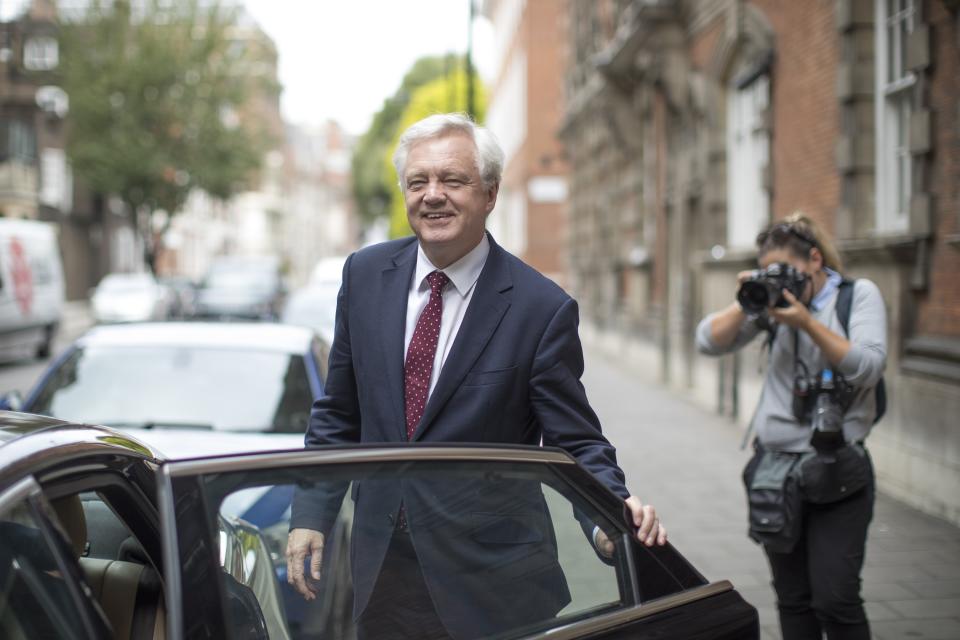Brexit: customs unions, single markets and trade arrangements explained

Three heavyweight Cabinet ministers have today united to unveil a “streamlined customs arrangement” with the EU post-Brexit.
Chancellor Philip Hammond, Brexit secretary David Davis and Liam Fox, the international trade secretary, published the heavily-trailed document detailing plans for a temporary customs union once the UK leaves the trading bloc.
The trio – who have been often at loggerheads over how best to tackle Brexit – believe the plans can reinforce Britain’s “strong starting position” to trade talks, even though Davis has been negotiating with his opposite number in Brussels for months.
MORE: Pro-EU MPs ‘plotting to defeat government over hard Brexit’
What does this new document propose, then?
Ministers are seeking a “highly streamlined customs arrangement” between the UK and the EU. They envision customs requirements that are as “frictionless as possible” but will not remain part of the tariff-free union.
This would aim to continue some existing arrangements Britain has with the EU, reduce or remove barriers to trade through new arrangements, and adopt technology-based solutions to make it easier for businesses to comply with customs procedures.
How would this customs arrangement work?
The new customs partnership with the EU would “align our approach to the customs border in a way that removes the need for a UK-EU customs border”.
One potential approach would involve the UK mirroring the EU’s requirements for imports from the rest of the world where the final destination is the EU.
Britain proposes having no customs checks at UK-EU borders in its untested approach. However, the UK would continue to operate its own checks on goods coming from outside the EU – and safeguards would be needed to prevent goods entering the EU that had not complied with its rules.
MORE: City ‘haemorrhaging’ talent because of Brexit, says headhunter
Crucially – and an area that will anger some hardline Brexiteers – the document also proposes a potential “interim period” where Britain would maintain a “close association” with the EU customs union.

What’s the difference between a customs union and single market?
The EU is not only a single market, it is a customs union. Norway and Iceland, for example, pay to be members of the single market – but also have to accept the free movement of goods, services, capital and people.
Turkey, on the other hand, is a member of the customs union – but the deal does not cover food or agriculture, services or government procurement.
If a country is in the EU customs union, they can face certain financial barriers to trade if they cannot prove goods they are looking to export originated in the home country.
Being a member of the customs union also means that a country cannot negotiate its own international trade deals – something the UK government says is a priority.
A customs union would mean the Ireland/Northern Ireland border would remain open and easy to cross.
It’s a bit of a mess, isn’t it…
Business has been calling for a period of adjustment, to steer clear of a hard Brexit. This interim period would, according to the document, “minimise disruption and offering business a smooth and orderly transition”.
However, that could mean the UK continuing to pay for access – a figure has not been mooted – which many Eurosceptic MPs say is a betrayal of the referendum vote.
MORE: Brexit Secretary: Interim customs deal with EU ‘in both sides’ interest’
They say Britain should not have to pay anything to the EU in a so-called divorce settlement, nor continue to pay for access once the UK leaves in early 2019.
Davis says this interim period could last 18 months to two years but, it’s not clear whether the free movement of people would continue during this time which, again, will rile many MPs and voters.
What do the three wise men say?
David Davis: “The approaches we are setting out today will benefit both the EU and UK and avoid a cliff-edge for businesses and individuals on both sides. An interim period would mean businesses only need to adjust once to the new regime and would allow for a smooth and orderly transition.”
Philip Hammond: “The leading document crucially sets out that the UK will be guided by what delivers the greatest economic advantage to the UK, and by three key objectives: to ensure trade with the EU is frictionless as possible, to avoid any form of hard-border between Ireland and Northern Ireland and to establish an independent international trade policy.”
Liam Fox: “We will seek a new customs arrangement that ensures that trade between the UK and the EU remains as frictionless as possible and allows us to forge new trade relationships with our partners in Europe and around the world.”

 Yahoo Finance
Yahoo Finance 
